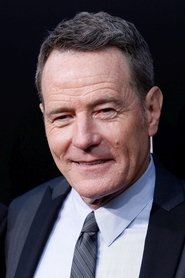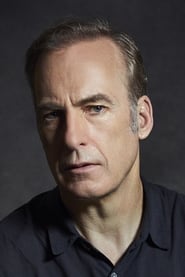
Ask Your Own Question
What is the plot?
The episode "Bug" begins with a close-up of a fly buzzing around the meth lab. Walter White is seen obsessively trying to catch the fly, which symbolizes his growing paranoia and the chaos in his life. He is fixated on the idea that the fly could contaminate his product, reflecting his need for control in an increasingly uncontrollable situation.
As Walter continues his futile attempts to catch the fly, he becomes increasingly frustrated. He is in the lab with Jesse Pinkman, who is trying to understand Walter's fixation. Walter explains that the fly represents a potential flaw in their operation, and he believes that if they can eliminate it, they can maintain the purity of their meth. Jesse, however, is more concerned about the fact that they are supposed to be cooking meth and not chasing bugs.
The scene shifts to Skyler White, who is at the car wash with her brother-in-law Hank Schrader. Skyler is trying to keep up appearances while dealing with the fallout from Walter's criminal activities. Hank is oblivious to the true nature of Walter's business and is focused on his own work as a DEA agent. Skyler's internal conflict is palpable as she navigates her dual life, trying to protect her family while being complicit in Walter's illegal activities.
Back in the lab, Walter's obsession with the fly escalates. He and Jesse have a tense conversation about their partnership and the direction of their operation. Walter's authoritative demeanor clashes with Jesse's more laid-back attitude, leading to a power struggle. Walter's need to assert control becomes evident as he berates Jesse for not taking the situation seriously enough. This confrontation highlights the growing rift between them, as Jesse feels increasingly marginalized.
Walter finally manages to trap the fly in a jar, but his victory is short-lived. He becomes distracted by a conversation with Jesse about their future and the risks they face. Walter's paranoia resurfaces as he begins to question Jesse's loyalty and commitment to their operation. This moment of doubt reveals Walter's deep-seated fears about losing control over his life and his business.
The episode takes a darker turn when Walter decides to take drastic measures to eliminate the fly. He prepares to use a can of insecticide, which symbolizes his willingness to resort to extreme actions to maintain his control. Jesse, sensing Walter's escalating madness, tries to intervene, but Walter is resolute. He sprays the insecticide in the lab, creating a toxic environment that endangers both of them.
As the toxic fumes fill the lab, Walter and Jesse are forced to evacuate. They stumble out into the fresh air, gasping for breath. This moment serves as a turning point for both characters, as they confront the consequences of their actions and the dangerous path they are on. Walter's need for control has led them to a precarious situation, and the tension between them reaches a boiling point.
In the final scenes, Walter and Jesse reflect on the chaos of the day. Walter's obsession with the fly has not only jeopardized their operation but also strained their partnership. Jesse expresses his frustration with Walter's behavior, and the two men are left at an impasse. The episode ends with a sense of foreboding, as the unresolved tension between them foreshadows the challenges they will face in the future. Walter's internal struggle with his identity as a criminal and a family man continues to haunt him, setting the stage for the conflicts to come.
What is the ending?
In the ending of "Bug," the episode concludes with a tense confrontation between Walter White and Gus Fring. Walter, feeling increasingly cornered and desperate, takes drastic measures to protect himself and his family. The episode ends with a sense of foreboding as Walter's actions set the stage for escalating conflict.
As the episode unfolds, we begin with Walter White at home, where he is preoccupied with the idea of a bug that has been bothering him. This bug serves as a metaphor for his growing paranoia and the feeling of being watched. He is increasingly aware of the danger posed by Gus Fring, who has been tightening his grip on the drug operation.
In a pivotal scene, Walter and Jesse Pinkman are in the lab, where they are working on their meth production. Walter's anxiety is palpable as he tries to maintain control over the situation. He is aware that Gus is not just a business partner but a looming threat. Walter's internal struggle is evident; he is torn between his desire to protect his family and the lengths he is willing to go to eliminate the threat posed by Gus.
Meanwhile, Gus is shown to be methodical and calculating. He is not just a drug lord but a man who operates with a cold precision. His interactions with Walter are filled with tension, as he subtly reminds Walter of the power dynamics at play. Gus's calm demeanor contrasts sharply with Walter's growing desperation, highlighting the shift in their relationship.
As the episode progresses, Walter's paranoia leads him to take drastic actions. He begins to suspect that he is being surveilled, which heightens his sense of urgency. This culminates in a scene where Walter confronts Gus directly, leading to a tense standoff. Walter's motivations are clear; he is fighting for his life and the safety of his family, but his methods are becoming increasingly reckless.
The episode concludes with Walter's realization that he must take control of the situation before it spirals further out of his grasp. The final moments are charged with tension, leaving viewers with a sense of impending conflict. Walter's fate is uncertain, but it is clear that he is willing to go to extreme lengths to protect what he holds dear.
In summary, the ending of "Bug" encapsulates the escalating tension between Walter and Gus, setting the stage for the inevitable confrontation that will define the remainder of the season. Walter's transformation from a desperate man to a calculated player in the drug world is evident, and the stakes have never been higher for him and those around him.
Is there a post-credit scene?
In "Bug," the ninth episode of Season 4 of Breaking Bad, there is no post-credit scene. The episode concludes without any additional footage or scenes after the credits roll. The focus remains on the main narrative and character developments throughout the episode, particularly highlighting the tension between Walter White and Gus Fring, as well as the emotional turmoil experienced by Jesse Pinkman. The absence of a post-credit scene allows the viewer to reflect on the intense events that have unfolded without any further distractions.
What is the significance of the fly in this episode?
The fly symbolizes Walt's obsession with control and perfection. It represents his deteriorating mental state and the chaos in his life, as he becomes fixated on eliminating it, mirroring his attempts to control his drug empire.
How does Walt's relationship with Jesse evolve in this episode?
Walt's relationship with Jesse is strained as Walt's manipulative tendencies surface. He uses Jesse's guilt and emotional state to his advantage, showcasing the power dynamics and their complex bond as they navigate the challenges of their criminal activities.
What role does Skyler play in this episode?
Skyler is portrayed as increasingly suspicious of Walt's behavior. Her determination to protect her family leads her to confront Walt about his lies, highlighting her growing awareness of his criminal life and the strain it puts on their marriage.
How does the episode explore Walt's guilt over his actions?
Walt's guilt manifests through his obsession with the fly, as he struggles with the consequences of his choices. The fly becomes a physical representation of his inner turmoil, forcing him to confront the moral implications of his actions in the drug trade.
What does the ending of the episode reveal about Walt's character?
The ending reveals Walt's increasing desperation and moral decline. His success in killing the fly symbolizes a temporary victory over chaos, but it also underscores his inability to escape the consequences of his actions, foreshadowing further turmoil in his life.
Is this family friendly?
"Breaking Bad" is not considered family-friendly, and "Bug," the ninth episode of Season 4, contains several potentially objectionable or upsetting elements.
-
Violence: The episode features scenes of physical confrontation and tension that may be disturbing to younger viewers.
-
Drug References: As with the entire series, there are ongoing themes related to drug manufacturing and use, which may not be suitable for children.
-
Intense Emotional Conflict: Characters experience significant emotional turmoil, including paranoia and fear, which could be unsettling.
-
Dark Themes: The episode explores themes of betrayal and moral ambiguity, which may be difficult for sensitive viewers to process.
-
Language: There is strong language throughout the series, including in this episode, which may not be appropriate for younger audiences.
These elements contribute to the overall mature nature of the show, making it more suitable for adult viewers.


















